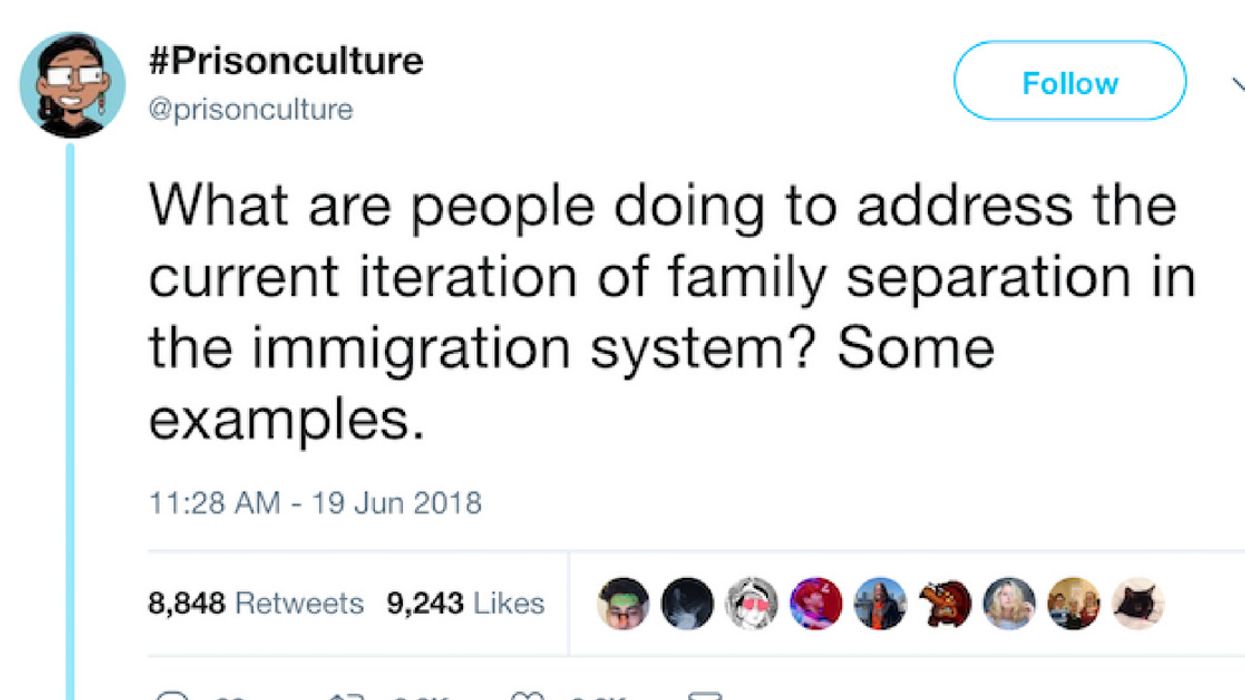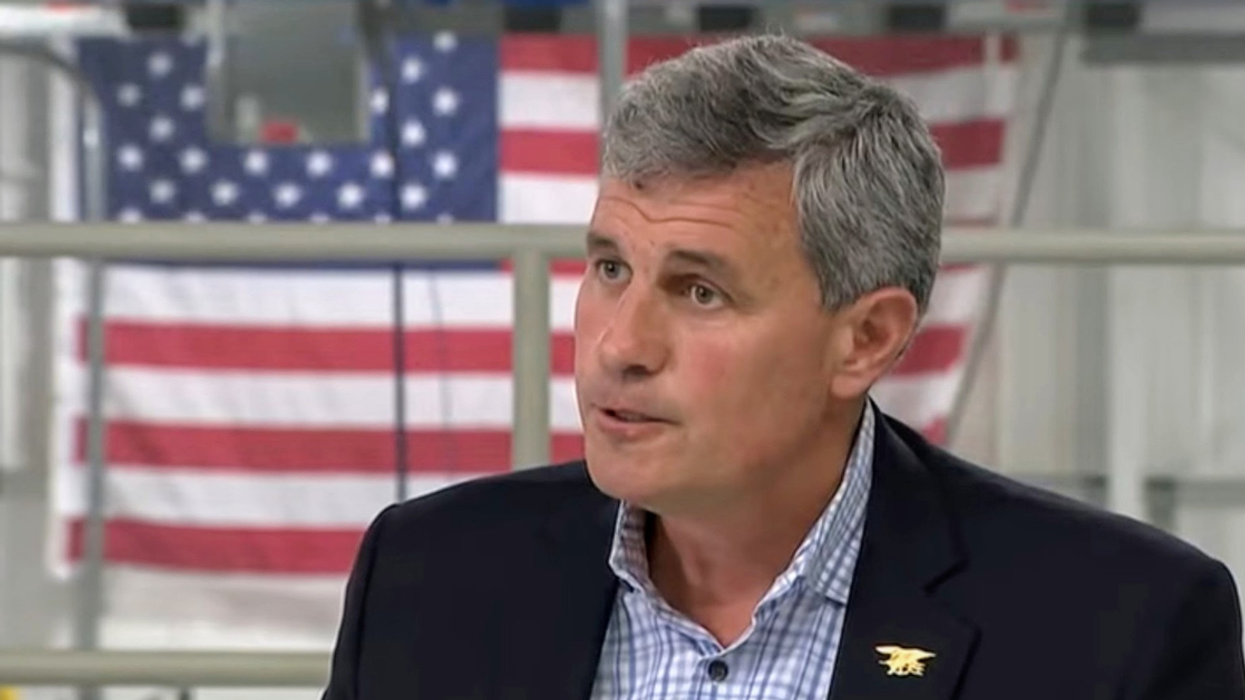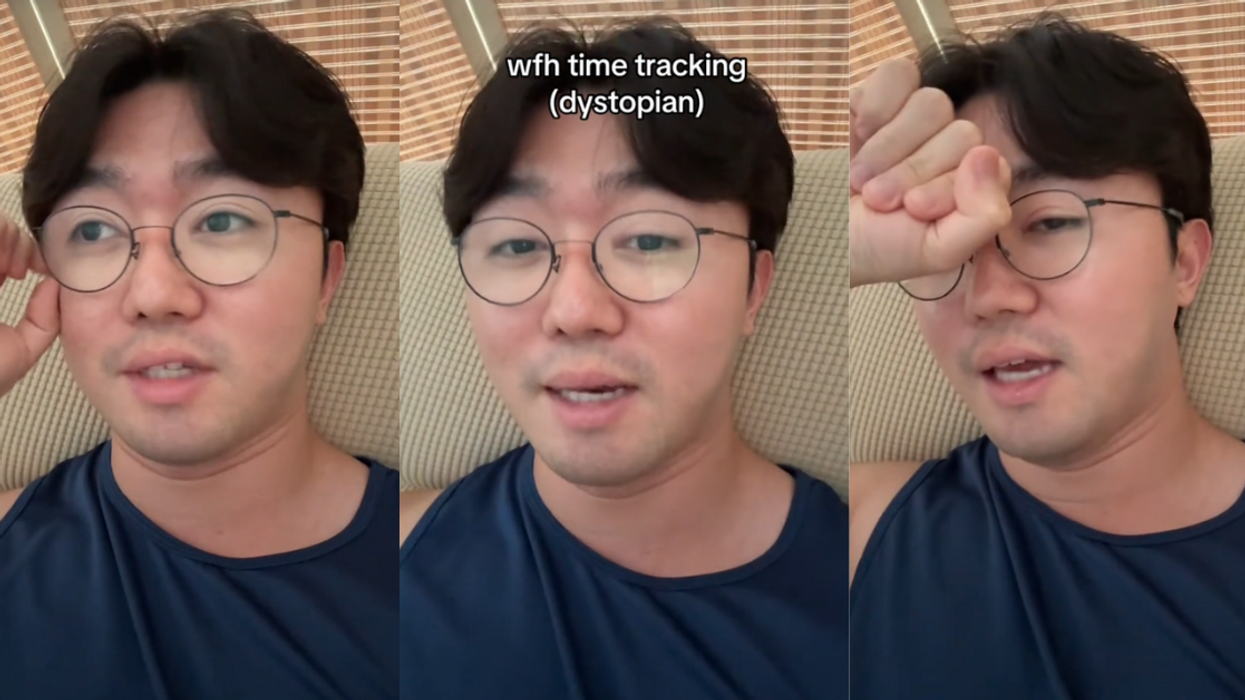The appalling immigration mandate that is ordering border officials to rip children away from their families at the U.S./Mexican border is breaking our hearts.
But for those who are feeling helpless and upset as the painful images of crying children separated from their parents flood our newsfeeds, Twitter user #Prisonculture started a conversation about what we can do to help.
There are more options than you think.
For starters, people are breaking the silence and making calls to Congress. Simply pick up your phones and voice your concern.
There are plenty of organizations that need legal assistance, translators, and donations. Slate provides plenty of information about which organizations to support, including the ACLU, The Florence Project, and Human Rights First.
To better acquaint yourself with immigrant detention, Freedom For Immigrants provides an up-to-date map of the U.S. immigration detention system.
The website gathered information from the federal government data to provide the following statistics:
According to federal government data, Texas (15,852), California (6,527), Arizona (3,869), Georgia (3,717), and Louisiana (3,143) are the top five states with the largest number of people in U.S. immigration detention per day.
According to federal government data, over 60 percent of people are held in privately-run immigrant prisons. For example, GEO Group and Corrections Corporation of America/CoreCivic together detain approximately 15,000 people in immigration detention per day.
Organized protests are underway.
You can reach out to local ICE facilities directly.
You can take advantage of social media to influence change.
Any course of action is encouraged to turn your frustration into something productive.
People made helpful contributions to the thread.
The person who started the thread is a founder of Project NIA, which uses participatory community justice to redefine the goals of the criminal justice system by encouraging community member involvement.
@prisonculture just helped giving voice to all who are enraged and wanting to contribute for the cause.
Now that we're armed with plenty of resources, it's time to make our voices heard. Together, we can make a difference in coming up with solutions to reunite these families.








 Lemon Juice 80S GIF
Lemon Juice 80S GIF  Michael Myers
Michael Myers  Give Thanks Eating GIF by I Heart Guts
Give Thanks Eating GIF by I Heart Guts  Gordon Ramsay Fox GIF by HULU
Gordon Ramsay Fox GIF by HULU  baking ann b. davis GIF by HULU
baking ann b. davis GIF by HULU 






 @timleesblee/TikTok
@timleesblee/TikTok @timleesblee/TikTok
@timleesblee/TikTok @timleesblee/TikTok
@timleesblee/TikTok @timleesblee/TikTok
@timleesblee/TikTok @timleesblee/TikTok
@timleesblee/TikTok @timleesblee/TikTok
@timleesblee/TikTok @timleesblee/TikTok
@timleesblee/TikTok @timleesblee/TikTok
@timleesblee/TikTok @timleesblee/TikTok
@timleesblee/TikTok @timleesblee/TikTok
@timleesblee/TikTok @timleesblee/TikTok
@timleesblee/TikTok @timleesblee/TikTok
@timleesblee/TikTok
 @skylr.m/TikTok
@skylr.m/TikTok @skylr.m/TikTok
@skylr.m/TikTok @skylr.m/TikTok
@skylr.m/TikTok @skylr.m/TikTok
@skylr.m/TikTok @skylr.m/TikTok
@skylr.m/TikTok @skylr.m/TikTok
@skylr.m/TikTok @skylr.m/TikTok
@skylr.m/TikTok @skylr.m/TikTok
@skylr.m/TikTok @skylr.m/TikTok
@skylr.m/TikTok @skylr.m/TikTok
@skylr.m/TikTok @skylr.m/TikTok
@skylr.m/TikTok @skylr.m/TikTok
@skylr.m/TikTok @skylr.m/TikTok
@skylr.m/TikTok @skylr.m/TikTok
@skylr.m/TikTok @skylr.m/TikTok
@skylr.m/TikTok